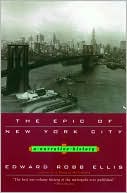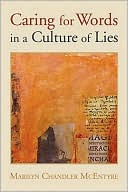Classic Christmas Films
Celebrate the Christmas Spirit with Films that Evoke a Bygone Era
Many people are far too busy during Christmas and often forget what the holiday truly stands for. I know for my own part that I have been guilty of that. Of course, you may not even realize that you have forgotten. After all, you’re not busy buying presents for yourself, but for others. Isn’t that what Christmas is all about? Well, not quite. As David Niven observes in the film The Bishop's Wife,
All the stockings are filled, all that is, except one. And we have even forgotten to hang it up. The stocking for the child born in a manger. It's his birthday we're celebrating. Don't let us ever forget that. Let us ask ourselves what He would wish for most. And then, let each put in his share, loving kindness, warm hearts, and a stretched out hand of tolerance. All the shining gifts that make peace on earth.Indeed, many Christmas films have wonderful messages about the true meaning of the season and really help you to get past all the wrapping paper and commercialization of the holiday. That’s why I love watching them this time of year.
I’ve compiled a top ten list here of classic Christmas films. I hope that several of these are your favorites or, perhaps, you’ll find one to add to your own list. And if you have a suggestion of a wonderful movie that I have missed out on all these years, please do share!
Although the film suffers from over sentimentality and a paper thin plot, it is rescued by the performances of Bing Crosby and Danny Kaye as the leads and the wonderful song and dance numbers, all written by Irving Berlin. The movie follows the adventures of two war buddies, turned entertainers, as they help their former army commander save his failing Vermont country inn. Also features the talents of Rosemary Clooney and Vera Ellen as the love interests. This is a feel-good movie to brighten the holidays. In the words of the classic song, "May your days be merry and bright / And may all your Christmases be white." Watch the trailer here.
8. Miracle on 34th Street (1947)
7. The Man Who Came to Dinner (1942)
Monty Woolley stars as Sheridan Whiteside, a famous radio broadcaster who arrives in Mesalia, Ohio to give a lecture and reluctantly accepts an invitation to dine with Ernest and Daisy Stanley (played by Grant Mitchell and Billie Burke respectively). But just as he climbs the icy steps to enter their house, he slips and falls, injuring himself. Bedridden and then later confined to a wheelchair, the cynical Sheridan commandeers the house and servants as he recuperates over the Christmas holidays, overturning the peace of the Stanley household, and refusing to leave. When his secretary Maggie Cutler (Bette Davis) falls in love with the local newspaper man Bert Jefferson (Richard Travis), the egotistical Whiteside does all in his power to destroy the romance, calling on the talents of Lorraine Sheldon (Anne Sheridan) and Banjo (Jimmy Durante). Reginald Gardiner also turns in a fine performance as Beverly Carlton; he would later appear in Christmas in Connecticut as well. Indeed, the star studded cast is one of the reasons this movie has become a holiday classic, and the sharp, speedy dialogue only adds to the fun. This is the fear of one's holiday guests overstaying their visit taken to a most hilarious extent. Watch the trailer here.
6. Remember the Night (1940)
Lee Leander (Barbara Stanwyck) faces spending Christmas in jail after shoplifting a bracelet, but assistant district attorney John Sargent (Fred MacMurray) takes pity on her, posts her bail, and offers to drive her to her family in Indiana. Lee's mother cruelly turns her daughter away, however, so John invites Lee to his own family's home for Christmas. When the film was released, Frank Nugent wrote in his review for The New York Times, "It is a memorable film, in title and in quality, blessed with an honest script, good direction and sound performances...a drama stated in the simplest human terms of comedy and sentiment, tenderness and generosity...warm, pleasant and unusually entertaining." The film encapsulates the Christmas spirit as a story of redemption and the power of love. Watch the trailer here.
5. The Bishop’s Wife (1947)
Cary Grant is Dudley, an angel sent to earth in answer to the prayers of Bishop Henry Brougham (David Niven). The Bishop is trying to build a new cathedral, but has run into trouble about the funds and prays for "guidance." His obsession with the project has led him to neglect his beautiful, but unhappy wife Julia (Loretta Young) and daughter Debby (Karolyn Grimes, who would later play Zuzu in It's a Wonderful Life). While Brougham would very much like the angel to show him a way to get the needed money from the wealthy Mrs. Hamilton (Gladys Cooper), Dudley's guidance is much different. The angel touches the lives of all (including the disillusioned professor Wutheridge, played by Monty Woolley), reminding them of the true meaning of Christmas -- selflessness and loving kindness. A Christmas gem -- who would think Cary Grant could play an angel so convincingly? Watch the trailer here.
4. Christmas in Connecticut (1945)
Barbara Stanwyck stars in another Christmas movie as journalist Elizabeth Lane, who writes a column about her gourmet cooking and her life on a farm with her husband and infant son. The only trouble is Lane can't cook, lives in a small apartment in New York City, isn't married, and doesn't have a child. When her publisher, Alexander Yardley (Sydney Greenstreet), wants to send war hero Jefferson Jones (Dennis Morgan) to her farm for Christmas and decides to invite himself as well, Lane and her editor, Dudley Beecham (Robert Shayne) risk losing their jobs. But with the help of her friend Felix Bassenak (S. Z. "Cuddles" Sakall), who owns a local restaurant, and John Sloan (Reginald Gardiner), her relentless suitor who owns a farm in Connecticut, everything looks like it may turn out "hunky dunky" (in the words of Felix). The screwball comedy is a delight to watch with strong performances by all. Connecticut really does seem the perfect place to spend Christmas. Watch the trailer here.
3. Holiday Inn (1942)
Irving Berlin's "White Christmas" was originally written for this film and soon became one of the best loved Christmas songs and the best selling single of all time. Bing Crosby plays Jim Hardy, a singer engaged to the lovely Lila Dixon (Virginia Dale), who plans to quite his job as an entertainer and buy a farm in Connecticut. Lila, however, would rather remain in showbusiness and leaves Hardy for his former partner, dancer Ted Hanover (Fred Astaire). Hardy, however, persists in his dream of farm life. Yet, disillusioned by the hard work, he decides to convert the farm into an inn that will only open during the holidays. The inn turns out to be a huge success, especially thanks to the talents of Linda Mason (Marjorie Reynolds), who has been looking for a way to break into the entertainment industry. Hardy is soon falling in love with Linda, but one night Hanover shows up at the inn searching for a new dance partner. Lila left him for a millionaire. Will Hardy be jilted again and his inn forced to close? The beauty of this film is that it does not only revolve around Christmas, but has song and dance numbers for nearly every holiday from July 4th to Valentine's Day to Easter to Thanksgiving. Watch the trailer here.
2. It’s A Wonderful Life (1946)
It seems incredible that this Christmas classic did rather miserably at the box office when first released. The American Film Institute now names it as number one on their list of the most inspirational American films of all time. George Bailey (Jimmy Stewart) dreams of leaving the small town of Bedford Falls. He reads National Geographic as a young boy and saves up his money to go to college and travel around the world. At one point, he exclaims, "I'm shakin' the dust of this crummy little town off my feet and I'm gonna see the world. Italy, Greece, the Parthenon, the Colosseum. Then, I'm comin' back here to go to college and see what they know. And then I'm gonna build things. I'm gonna build airfields, I'm gonna build skyscrapers a hundred stories high, I'm gonna build bridges a mile long... " But George's dreams are shattered when his father suddenly dies, forcing him to take over the family business, the Bailey Building and Loan. George consistently sacrifices his dreams for the sake of others, settling down in Bedford Falls and marrying Mary Hatch (Donna Reed). But even this little world is shattered on Christmas Eve and George, believing his life has been a failure, nearly kills himself. He is rescued by an angel Clarence (Henry Travers) who gives George a glimpse of what Bedford Falls would have been like if he had never lived. Clarence comments, "Strange, isn't it? Each man's life touches so many other lives. When he isn't around he leaves an awful hole, doesn't he?" Capra's classic is equal parts nostalgic, touching, humorous, and thought-provoking. Stewart delivers one of the finest performances of his career. Lionel Barrymore is at his best as the horribly evil Henry F. Potter. All can relate to the struggles of George Bailey, who ultimately understood that though his personal dreams were never realized, he really did have a wonderful life. Watch the trailer here.
1. Scrooge (1951)
Although there have been numerous film adaptations of Charles Dickens' A Christmas Carol, Alastair Sim's performance as Scrooge is often considered the best. The film presents Dickens' story with little changes or additions (and what additions there are work wonderfully for this version). Scrooge, a hard hearted old businessman, is haunted by three spirits on Christmas Eve who give him a chance to repent and forsake his miserly ways. Mervyn Johns delivers a convincing performance as Scrooge's clerk, Bob Cratchit, and young Glyn Dearman as Tiny Tim seems to mean every word he says when he declares, "God bless us, every one." The Spirit of Christmas Present emphasizes the true meaning of the holidays when he states, "We Spirits of Christmas do not live only one day of our year. We live the whole three-hundred and sixty-five. So is it true of the Child born in Bethlehem. He does not live in men's hearts one day of the year, but in all days of the year." Watch the trailer here.
Labels: Movie Reviews
Posted by Nicole Bianchi at 10:22 PM
|
![]()




















 This is life seen through the eyes of a writer. A blog that critically examines literature, music, and film. NB, initials which coincidently coinside with the Latin words "nota bene" (mark well), belong to the blog poster, a bibliophile who likes to haunt libraries and book stores, talk about all things bookish, and ramble at any length on things regarding literature. Many of the articles posted here were written as essays for high school and college.
This is life seen through the eyes of a writer. A blog that critically examines literature, music, and film. NB, initials which coincidently coinside with the Latin words "nota bene" (mark well), belong to the blog poster, a bibliophile who likes to haunt libraries and book stores, talk about all things bookish, and ramble at any length on things regarding literature. Many of the articles posted here were written as essays for high school and college.





